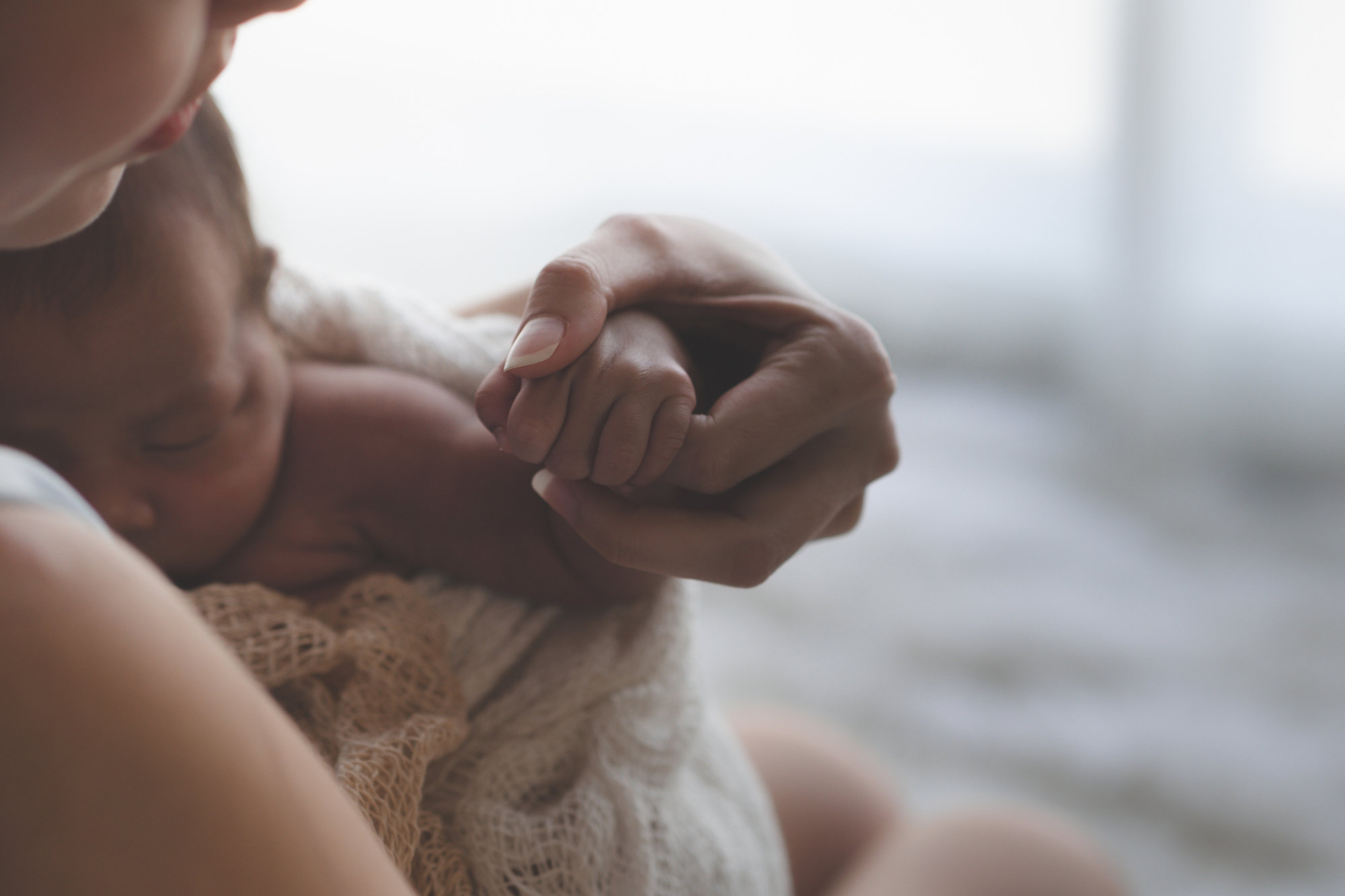
Ever since the novel coronavirus began spreading around the world, parents and expectant parents have been waiting with bated breath for up-to-date, reliable research. Specifically, parents-to-be are understandably concerned about the potential for COVID-19 to pass from an infected mother to her infant and what the consequences of transmission could be. Now, a small JAMA Pediatrics study of pregnant women in China aims to shed light on this concern.
Researchers identified 33 new moms who had given birth while infected with COVID-19.
Of the 33 newborns born to these moms, just three had contracted the virus. After the babies received treatment for their symptoms, they survived, according to doctors who were from two children's hospitals in Wuhan, China, and one in Shanghai.
“The clinical symptoms from 33 neonates with or at risk of COVID-19 were mild and outcomes were favorable,” noted the authors.
That said, one of the mothers went into labor prematurely as a result of her illness.
One baby was delivered by cesarean section nearly nine weeks before its due date, because the mother was suffering from pneumonia stemming from her infection with the virus. Researchers attribute the baby's health problems — neonatal respiratory distress syndrome, pneumonia, and the need to be resuscitated — to being born prematurely, as opposed to contracting the coronavirus.
The two babies who were born full-term exhibited worrisome COVID-19 symptoms.
Both were lethargic and feverish with signs of pneumonia in their lungs, and one of them experienced vomiting, according to researchers.
Thankfully, their recovery was fairly swift.
After all three babies tested positive on their second and fourth day of life, the two full-term infants were negative by day six. The premature infant, born at 31 weeks and 2 days, had a tougher time recovering, but the baby tested negative by day seven.
Still, the preemie required another week to recover from respiratory problems, following treatment with antibiotics, caffeine, and noninvasive ventilation, according to the report.
Experts who weren't involved with the study attribute the newborns' speedy recovery to an underdeveloped immune system.
It might sound counterintuitive, but researchers believe a baby's immune system simply can't launch the type of extreme response that an adult's will — which can actually backfire and cause complications or even death.
Dr. David Kimberlin, a professor of pediatric infectious diseases at the University of Alabama at Birmingham who was not involved in the study, told the Los Angeles Times that the exact forces at work remain very unclear, particularly with a sample size of just three babies.
In the JAMA study, researchers noted that it's "likely" the newborns picked up the virus via their moms.
“Because strict infection control and prevention procedures were implemented during the delivery, it is likely that the sources of SARS-CoV-2 in the neonates … were maternal in origin,” the doctors wrote.
To that end, they emphasize how crucial it is for health care providers to screen pregnant women and "implement strict infection control measures, quarantine of infected mothers, and close monitoring of neonates at risk of COVID-19.”
Still, the jury is out on the medical community's position on maternal transmission in utero.
Kimberlin co-wrote an editorial addressing two other papers published this week in the Journal of the American Medical Association that investigated whether or not COVID-19 could pass from mom to fetus this way. The research was “not conclusive,” he and a colleague wrote.
The bottom line: We need more research, with a larger sample size, to fully understand how coronavirus can affect pregnant women and their newborns.
What we do know: Pregnant people with COVID-19 do not need to change the timing or delivery method of their birth plans, according to the American College of Obstetricians and Gynecologists.
And if you're pregnant and diagnosed with the virus, ACOG recommends following advice from the CDC and your OB/GYN or other health care professional. The current CDC advice for all people with COVID-19 includes the following:
– Stay home except to get medical care. Avoid public transportation.
– Speak with your health care team over the phone before going to their office. Get medical care right away if you feel worse or think it’s an emergency.
– Separate yourself from other people in your home.
– Wear a face mask when you are around other people and when you go to get medical care.




